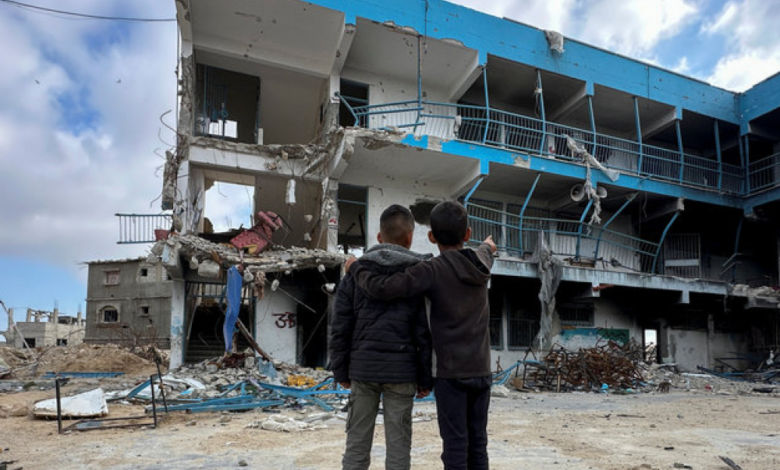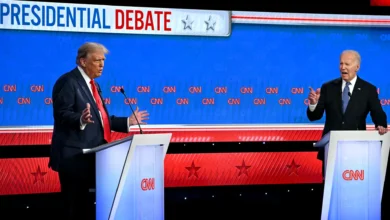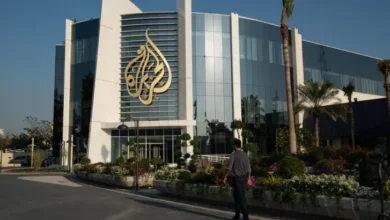The Escalation in Gaza and the Complex Dynamics of Negotiation

The Escalation in Gaza and the Complex Dynamics of Negotiation
The ongoing genocide in Gaza has reached a critical juncture, marked by an escalation in violence and a grim outlook for the return of hostages. Israeli occupation Prime Minister Benjamin Netanyahu’s hardline stance has further complicated the situation, leaving little room for a ceasefire and diminishing the hopes of families waiting for their loved ones. Simultaneously, the United States is actively negotiating with regional powers such as Qatar and Egypt, seeking to impose a solution that appears increasingly skewed in favor of Israel, often at the expense of Palestinian interests. This complex web of diplomacy, power politics, and human suffering highlights the challenges of resolving one of the most intractable conflicts in modern history.
The Escalation of Violence and Netanyahu’s Policy
The recent escalation in Gaza is part of a broader pattern of violence that has characterized the Israeli-Palestinian conflict for decades. However, under Netanyahu’s leadership, Israel has adopted an increasingly aggressive approach, focusing on military solutions rather than diplomatic ones. Netanyahu has consistently emphasized security concerns, framing the conflict in terms of self-defense against Hamas. This perspective has led to a relentless military campaign aimed at weakening Hamas, but it has also resulted in genocide and widespread destruction in Gaza.
Netanyahu’s refusal to consider a ceasefire reflects his broader strategy of exerting maximum pressure on Hamas while minimizing concessions. This approach leaves little room for negotiation or compromise, especially releasing Palestinian detainees and Israeli hostages. The families of those held captive face a grim reality, as Netanyahu’s policies suggest that their loved ones are seen as collateral in a broader strategic game rather than as individuals whose lives should be prioritized in negotiations.
The Role of the United States and Regional Mediators
Amid this escalation, the United States has taken on the role of a mediator, though its position is complicated by its longstanding alliance with Israel. The Biden administration has engaged with regional powers such as Qatar and Egypt, who have historically played mediating roles in the Israeli-Palestinian conflict. Qatar, with its connections to Hamas, and Egypt, with its border with Gaza, are seen as critical players in any potential ceasefire or hostage negotiation.
However, the U.S. approach has drawn criticism for appearing to prioritize Israeli security concerns over Palestinian rights and interests. This perception is fueled by the U.S.’s reluctance to pressure Israel into a ceasefire and its focus on countering Hamas rather than addressing the root causes of the conflict. By leaning heavily towards Netanyahu’s perspective, the U.S. risks alienating Palestinian leaders and undermining its credibility as a neutral mediator.
The Neglect of Palestinian Rights
One of the most troubling aspects of the current situation is the apparent neglect of Palestinian rights in the broader diplomatic efforts. The focus on military solutions and the marginalization of Palestinian voices in negotiations perpetuate a cycle of violence and resentment. Palestinian civilians, who bear the brunt of the conflict, find themselves trapped in a dire situation with little hope for a just resolution.
The U.S.’s failure to advocate for Palestinian rights and to push for a balanced approach in negotiations exacerbates the situation. Without addressing the underlying issues of occupation, settlement expansion, and the blockade of Gaza, any proposed solution is likely to be unsustainable. The absence of a genuine commitment to Palestinian self-determination and human rights only deepens the divide and makes a lasting peace more elusive.
Conclusion
The escalation in Gaza and the complex dynamics of international diplomacy underscore the profound challenges of resolving the Israeli-Palestinian conflict. Netanyahu’s hardline policies, coupled with the U.S.’s support for Israel, have created a situation where the prospects for a ceasefire are dim, and the return of hostages remains uncertain. The involvement of regional mediators like Qatar and Egypt offers a glimmer of hope, but without a more balanced approach that genuinely considers Palestinian rights, the cycle of violence is likely to continue. The international community must recognize that a sustainable resolution to this conflict requires more than just short-term military solutions; it demands a commitment to justice, human rights, and the dignity of all people involved.
Discover more from Gaza Never
Subscribe to get the latest posts sent to your email.





